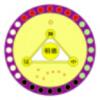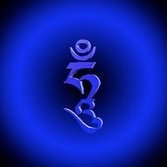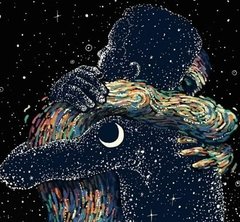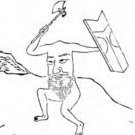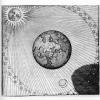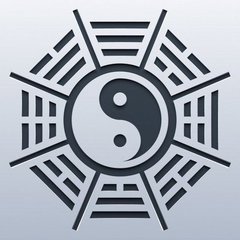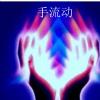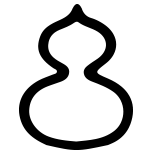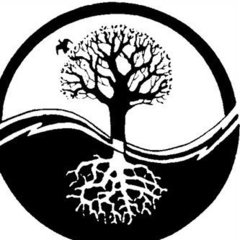Leaderboard
Popular Content
Showing most thanked content on 05/27/2020 in all areas
-
5 points
-
4 pointsBeen about 10 years! I couldn't sign in as Yoda so created this Yoda AZ name. Moved to AZ and tried to look up Cam recently but no luck with an old aol email address. His family has a store down the road from me, so I'll check there next. Anyone here in the Phoenix area?
-
4 points
-
4 pointsIndulge me , I wanted to talk about non-dual Buddhism and everyone is bringing their arhats to the table. Sandals, cloaks and hats at the door please!
-
4 pointsGreat to hear from you. For an original member like you I'm not even gonna cut and paste the usual stuff. Nice to have you onboard and online again. Cam's been missing in action for a couple years. Maybe your presence will draw him out. Yours thelerner
-
3 pointsBuddhism is very befuddling to the intellect. That is why Nagarjuna spent so much time dismantling the intellect and showing its limitations (although not negating it completely). Consider emptiness. Things are empty, yet they appear. That doesn't make any sense. But why does it have to make sense? The universe feels no need to fit itself into our human made concepts. We should adjust to what happens rather than expecting what happens to adjust to us. When that doesn't work, I see it as a process of removal. Buddha nature is inherent, like gold crusted in rock, or a white cloth dyed blue, or [insert preferred example]. The gold may be in that rock, but until you clean it, polish it, and recognize its value, it might as well be a rock. Those positive acts don't change the nature of the gold, but without them the gold won't come through.
-
3 points*mutters from the dark Zen passageway* my answer is dual in nature... *points to empty sandals. Ah... guessin' that'd be me... *receeds back into dark Zen passageway
-
3 points:starts a fire and joyfully tosses sandals and cloak upon it: Seems our effortless feline wishes a dance of “naked awareness.”
-
3 points
-
3 pointsJust to add another conceptual stick on the log--- some teachers offer the formless view first. A sort of reverse Lam Rim. They offer the formless teachings first, and go down progressively so each student can meet the teaching according to their own capabilities. I used to have fierce opinions on this, but holding to thoughts a little more loosely, it seems to me that any approach is going to depend on each student. For some, the quick path is not quick at all, and they will muddle around conceptually when they could have been cultivating meritorious conduct. Others may not have the capacity for more formalized Tibetan practices, and some teachers may require decades of preliminary training before they even think about anything else. Mahamudra was (per Prof Reggie Ray) initially a householders path, and even Gampopa taught it apart from Tantra IIRC. I agree with @steve that there are cultural differences. Ngondro to a teenage Tibetan raised in a monastery may be a different experience that Ngondro to a 35 year Western householder who may have raised a family, progressed through formal education, and/or started a business. I am told there are often key psychological differences between the two cultures. Personally, I needed to spend some time drinking, smoking, and chasing samsara before I was fit for any dharma. And having one's life falling apart can be a good reminder of impermanence and the defects of samsara. I guess it depends on how broadly one wishes to use the words "preliminary" and "path." It seems to me that when you're on the path, there is a "higher power" that sort of directs you where you need to go if you are listening (and that can be a big if).
-
3 pointsHi Steve and others, I have spent the last 20 years on the Kagyu Ngondro and I am only about 60% through them!!!! But I do know others who do them quite quickly - especially if they start when young (as a student for example). But I think completion or otherwise of 100,000 this or that is - well not quite irrelevant but maybe not crucial. If you start this or any other practice from a kind of bottom up approach then you might perceive progress as like climbing some stairs - where the goal is at the top and you measure yourself accordingly. But on the other hand if you start with a mahamudra approach then its more like affirming buddha-nature in a number of ways - a very simple practise might awaken you immediately. If you see what I mean.
-
2 pointsVen Tenzin Choedon, more prominently known as Ani Tenzin, was a resident of Kollegal Tibetan settlement who had spent over 44 years in meditation retreat at the holy caves of Guru Padmasambhava. Her body was found in the state of Thukdam with floral fragrance all around.
-
2 pointsYou know that purple demon in the corner of your vision who keeps telling you to kill your neighbors and sit comfortably? Well listen to him about the second part.
-
2 pointsA Zhentong refuge prayer: "The self-luminous mind, The blissful buddha-nature, The causal basis of beings, Is free of both limit and limitlessness. Just as the colour of gold And the gold colour in bronze Can be revealed by polishing them, So too the buddha-nature exists within the skandhas, And all sentient beings. The buddha is without self and without skandhas. Is unending wisdom And eternal peace. I take refuge in it." - from the Lankavatara Sutra.
-
2 pointsThank you - I wasn't trying to overly control the conversation - I suddenly felt the danger of becoming lost either in a sutra maze or in a dark Zen passageway muttering short poetic musings to pass the time while nervously looking for the way out. What I want to consider is that if reality is a continuum of buddha-nature (buddha-field or whatever) then where is the path? What is the path? And what does this mean for understanding method and goals, for instance. How many mantras does a complete idiot (like Trump or Jigme Linpa as forest suggested above) have to chant to realise Buddha Nature? What does this say about method itself? Why do we engage in methods (like 8 fold path)?
-
2 pointsIn an empty, interdependent universe, definitions are slippery things. Here, I'm like "do you mean a complete idiot like Jigme Lingpa, or a complete idiot like certain unnamed political figures?" It reminds me of an old joke: one time, there was a hunting camp in a place where brigands and outlaws dwelled. On of the hunters was coming back from an evening hunt. He had a little knowledge of spirituality. When the camp guard heard the approach, the guard yelled: "Who goes there?" And the hunter, being clever said, "No one!" The guard, being a little more knowledgeable, yelled back "Not yet you're not!" Better to leave the pot on the stove, lest one gets burned.
-
2 pointsHi all I'm a Philosophy student and have recently found myself fascinated with Eastern Philosophy, particularly Taoism. I find the concept of Yin-yang very interesting, and infact very scientific, as well as Taoism's seeming appreciation for natural order and impartiality (correct me if i'm wrong). I loved the 'Tao te ching' and will be reading much more into Taoist scripture.
-
2 pointsIt’s like sweet rain falling after a long drought; Like encountering an old friend in a faraway, foreign land.
-
2 pointsSaw this review on Amazon- I wonder how accurate it is. If it is, then I'll pass on this book!
-
2 pointsNever have I said that they are mutually exclusive. Neither have I said that I'm not a scholar. Neither have I mentioned that I haven't studied Shaivist sources and those of other traditions. Cultivation isn't a trivial matter for me, and after two decades of learning and studying and practicing I definitely have heard and processed a large share of the viewpoints out there. So if "plenty of religious people don't like to consider evidence outside of their particular tradition" then it's their issue; I don't consider myself one of them. These posts are a digression anyway as they touch on my own cultivation of which nobody here knows more than a fragment apart from their own projections. My statement was that mantras do not necessarily require empowerment depending on their source. I base this on my experience, on my lineages, and my previous studies including other margas. I can further state that I'm also of the opinion that the source of power of Buddhist mantras is different than that of the non-buddhist Indian lineages. Lastly, I also stated that lamas/gurus don't necessarily know everything, as in my earlier post. M
-
2 pointsOh yes, almost forgot. Damo Mitchell also just released an online Taijiquan program: https://damomitchell.com/taiji-program/
-
2 pointsI really don't think any Buddhist path is dual. Mahayana especially, with its focus on emptiness--- by definition, in an empty universe, there is no basis upon which to erect any dualities. Some folks think that Shravaka is dual, because they discover the emptiness of self but not phenomenon, but I tend to agree with Ju Mipham Rinpoche that this is a bunch of pish-posh--- how could you discover the emptiness of self without also discovering the emptiness of phenomenon?
-
2 points
-
1 pointWhat's up fellow Bums? Been busy w/ work, life, and practice, but I did promise a few months back based on another thread that I would interview a Christian Monk that I am friends with, in regards to Christianity being a legit Path into Enlightenment, Tao, Union w/ God, The Supreme State, Mu, whatever you want to call it. As far as I go, I have had various experiences practicing Christianity, various forms of Buddhism, Nonduality, Zen, Koans, Vedic Techniques, Kundalini Yoga, Tai Chi, Qi Gong, and am basically a Universalist for the most part, so I am not here to impart any bias one way or another. While he wished to remain anonymous because he is from a very strict and popular Monastery, he does mention some interesting things that many of his fellow "brothers" may not have agreed with. Hence the anonymity. Is Christianity basically working on Enlightenment, Absolute Truth, Tao, Supreme, State, etc? Basically what all the Other Eastern paths are teaching/working on? "Yes. If you look at Anapanasati as practiced in some parts of Buddhism, the point of the practice is to strengthen/realize Awareness itself, as well as what lies at the bottom of the breath(that's a little hint for you by the way since I know you're also working on this). That Awareness is the key to unlock the rest of the doors. When The Ego is detached from, you remain as Awareness, and then can merge with the Source of Awareness which is what everyone is working on, the Source being the same as what everyone is calling it by different names." How does the Christian access Awareness and Detachment from Ego? "There are a number of ways, but I will cover two of the most important. The first is the ritual of Baptism, which simply activates Grace. Once Grace comes over you, it is a direct experience and a living presence that indwells you from the top of your head and instantly gives you The Timeless Now, Transcendence, Detachment, Destroys the Ego, activated divine Love, and all that's left is you as Awareness devoid of everything else. Then just surrender and let go and you as Awareness will merge with the Source. There is then no more you to be found anywhere, but are also United with everything and everywhere at the same time. As far as the first part above goes, there may still remain some fragments/pieces of ego left over that continue to stir up. With that, we do the Jesus Prayer focused on the Heart area where the access to the Source is. By doing the Jesus Prayer on this specific area, several things are accomplished. The ego is not only busy with the prayer, but also awareness learns pure concentration while ignoring all other subconscious arisings. Eventually, Awareness realizes the Source of thought and enters into it. The place is a few inches to right of the Heart. With Awareness resting at the Source of thought, eventually the whole Ego/Subconscious mechanism is pulled at the root and only Spontaneous Union and Grace remain." Do many Monks reach these states that you speak of? "Of course not. As with all institutions, there are members at various levels of growth and realization. There are also various ego games, traps, arguments, politics, and some who never reach perfection. However, with many elders deep in various levels of the perfected state, they tend to oversee selflessly the rest of the flock, and many times their own infused energies of higher states are enough to get the beginners started on their own path." So there is such a thing as Infusing others with various activations that help them along? "Yes of course. When you are in close proximity with an Elder who is far on the stage of perfection, their own Awareness is so expanded, it literally has an effect on your own. That's what Halo's are in all the Spiritual paintings, not just in Christianity but also in Hindu-Vedic depictions and also those of Buddha himself. The Halo is just the inner Awareness that is you, prior to ego and body. It eventually expands beyond the head and many times you can see it on the elders." Are all those other Paths legit as well? Why did you choose Christianity instead of other paths? "There are many Universal similarities in all the paths. Detachment, Awareness, the Source, Discipline, Wisdom, Knowledge, and an Absolute Truth that can be experienced which is the prior underlying reality of all of reality. I tried various paths as a young man and college student and ended up staying with Christianity because the direct experiences and Grace came really fast for me. It took about a year of seriously getting into it that I started to experience ego death, the Now, Transcending all things (body, ideas, thoughts, self). Everything happened really fast through Grace. Some of the other paths I tried, I was getting experiences but they were at a snails pace. All that to say, I am not trying to discredit any of the other paths." Some people say Christianity is just a go-to-Church feel good about yourself singy songy wishy washy type of Religion where the majority of followers don't get any huge internal breakthrough's. "That happens with many paths. They eventually get watered down and become a facade of their former selves. Aren't various forms of hot-room Yoga's the hottest(pun intended) pop-forms of exercise in America these days? That's just one example. The actual Yoga (meaning Union, or to Unite with the Source) is a very advanced system of remaining Aware of the Body and Mind in the midst of various poses, all leading back to strengthening Awareness. One of the benefits of Yoga is that you may come across physical attributes that are tied to the workings of the Ego such as various physical knots or childhood traumas that can be released during certain stretches. Just as well, the channel that the Ego uses to take it's place as a veil over Awareness can also be opened during Yoga practice. So in essence, many of the Christian Monasteries, or even lay hermits, are genuinely working on inner planes through various degrees, techniques, practices, and Grace...all of which eventually lead to Tao, Source, God, Supreme, Absolute whatever you want to name the Nameless direct experience. Christianity has also become a watered down fast food western version of preaching, singing, and one hour a week of service. To really have breakthroughs, requires lengthy time spent in practice, detachment, prayer, meditation, etc. When Jesus went into the Desert for 40 days, that is something every Christian should do. 40 days in any retreat or wilderness will bring out the worst of the ego, the perfect opportunity to see that it isn't you and detach from it as Awareness." Did Christ exist and are his teachings real? "When Buddha said not to take his word for it and to see if what he says is true through direct experience, the same thing applies to the teachings of Christ. We put his teachings into practice and eventually start experiencing fascinating states directly for ourselves. You yourself are the experiment, the laboratory for testing to see what happens. When you start to experience the same things Christ taught, that tends to solidify his existence. Also, many Monks adore the Gospel of Thomas. If you read that Gospel, many of the sayings there are very Nondual sounding and tends to link back to everything else in the East. He speaks about alot about Oneness that is experiential" What about faith? I had a fellow argue with me that Christians have to use Faith and that since Faith is of the Ego, it's dealing with illusions of the mind "You only use faith for a little while, say agreeing to trust in, or have faith that this path may possibly take me where I want to go. Once you do experience the things you were looking for within and without, then there's no need for Faith because at that point there's no other choice then to directly live from direct experience of the Absolute. A person who tries any other path, you can say technically, is also using a form of Faith in it. If a person looks into Zen, and all of it makes logical, reasonable, and intuitive sense, well then they take the leap of faith(again technically speaking) and jump in head first. Scientists also have Faith in the Scientific method. However it's dated and based on physicality as a rule that has its own sets of rules and limits. One of those rules being that an experiment has to be replicated/repeatable. However, some experiments, by their very nature, can never be repeated. In that case they are tossed aside as anomalies, however those anomalies can also be legitimate things. Take for example this very moment right now. If there was a room full of scientists, they would clearly be able to observe and agree on this present moment, would agree it exists, would be able to record it, examine it, and pull up tons of data on it. However, once this moment is gone, that's it!!!! They can't ever reexamine it again or recreate it. So according to their own rules of the scientific method, reality itself is a anomaly. But I digress" What about Christ saying he's the only way? "Look at the context with which he's saying that. He's talking to a bunch of jews stuck in judaism, a path that does not lead to Enlightenment. Jewish Mysticism does start to touch on some of the subjects we have already discusses, but I'm talking about the normal Judaism of the day. Jesus is telling them to leave their dead ways and that his example and teachings are the only way to find what they are trying to find. It's basically a command in the heat of the moment. If you look at what his Way is, it's a combination of ego death, enlightenment, Grace, Love, empathy, compassion, Tao, Absolute, Supreme, etc. So anyone who is working towards that goal is already following his path. One of the factors of Christianity that is interesting that is not found that much in many other paths is that of Ego-Death through Grace by the Holy Spirit entering the top of the head and opening all the channels and illuminating Awareness, while detaching all else. I believe I've come across something similar in my studies of Kashmir Shaivism. Also some people claim that Kundalini is the Holy Spirit, however I'm not to sure about that as Kundalini tends to be from the perenium and up the spine to the crown, whereas the Holy Spirit enters the head and goes down tot he feet. I would have to brush up on my studies however by researching the word Grace and it's existence in all the other paths On many occasions here during various services, you can feel the Spirit moving around the grounds and rooms of the Monastery. It enters you when you least expect it and slays or burns off any remaining ego fragments and fills you with divine transcendent Love & Bliss as a replacement. " So the Christian Path is a legit path towards Enlightenment? "Why yes of course. I understand you intend to share this discussion with a few brothers and sisters that are Buddhists and of various other paths. If they are already deep in their practice and making headway, then good for them, as it is exactly what Christ was all about. The one thing I feel is necessary to say is that Eastern Christian practice as done in the Eastern Orthodox monasteries is a complete system from beginning to end. I say that, because I found early on that in many other paths, you can merge with the Source, however there still remain ego fragments and the whole of the subconscious stirring up constantly and causing troubles for the rest of one's life. In our school, through the Jesus prayer, all of that is eventually snuffed out and there is a completion stage of perfection where even the body is transformed and filled with light flowing through all the opened channels. So there's a start and there's and end and can all be done in this lifetime. Of course the rest of life remains as a practice of making available to others the energies and Union that is within you by going out to the world and sharing the Light" End Anyway, I have a lot more to the interview, but these main q&a's were the most interesting. As far as I go, all my interest in enlightenment, health, channels, tai chi, light body, ego death, and so forth he covered for me. Some things he mentioned, I have experienced through Christianity, while other things he mentioned to have been experiencing, I came across them after battles with koans, vipassanna, nondual inquiry, zazen, etc..... just wanted to put that out there cause I personally see it as a legit path equal to that of the others. But there were some folks on here adamant that it's all bull. I think the perspective of my Monk friend who has been in the depths for a good two decades know and also comes from a similar background of having studied and tried various paths, gives us a cool internal perspective. Enjoy!!!! (sorry for spelling as everything is transcribed and quickly typed from a telephone recording!!!!)
-
1 pointDerek Lin 1994 36 If one wishes to shrink it One must first expand it If one wishes to weaken it One must first strengthen it If one wishes to discard it One must first promote it If one wishes to seize it One must first give it This is called subtle clarity The soft and weak overcomes the tough and strong Fish cannot leave the depths The sharp instruments of the state Cannot be shown to the people If we wish to reduce something, to make something smaller, we must first expand it. After it is stretched out, it will naturally shrink back down to size. Similarly, if we wish to weaken something, we must first strengthen it. The seed of weakness invariably exists in the greatest of strengths. In order for something to be discarded or abandoned, it is first promoted. The world is full of examples of things that are hyped up and then thrown away and forgotten without a second thought. In order to get something, we must first give it. For instance, if we wish to be treated kindly, we must start by treating others with kindness. This works because the Tao process is circular; the principle underlying all interactions is one of dynamic, universal energy exchange. We say that these illuminated insights are subtle, because they seem to be the very opposite of our habitual thought patterns. To understand them is to become enlightened in the subtle workings of the Tao. That which is gentle, soft and weak seems to yield to that which possesses toughness, strength and aggressiveness, but the yielding is deceptive, for in the end the soft overcomes the hard. It is the nature of the Tao to remain hidden. Just as the fish does not leave the depths and a country does not display its weapons and inner workings to the people, a sage remains deeply immersed in the Tao and does not utilize his or her insights against people who are more shallow. Ellen Marie Chen 1989 36 What is to be reduced, Must first be expanded. What is to be weakened, Must first be made strong (ch'iang). What is to be abolished, Must first be established. What is to be taken away, Must first be given. This is called the subtle illumination (wei ming). The soft and weak overcome the hard and strong. Fish must not leave the stream. Sharp weapons (ch'i) of a state, Must not be displayed. Ni 1979 36 If you hope to expand, you should first contract. If you hope to become strong, you should first weaken yourself. If your ambition is to be exalted, humiliation will follow. If you hold fast to something, it will surely be taken away from you. This is the operation of the subtle law of the universe. The law of the universe is subtle, but it can be known. The soft and meek can overcome the hard and strong. The strength of a country must not be displayed. Just as fish cannot leave the deep, one must never stray from one's true nature. J. McDonald 36 If you want something to return to the source, you must first allow it to spread out. If you want something to weaken, you must first allow it to become strong. If you want something to be removed, you must first allow it to flourish. If you want to possess something, you must first give it away. This is called the subtle understanding of how things are meant to be. The soft and pliable overcomes the hard and inflexible. Just as fish remain hidden in deep waters, it is best to keep weapons out of sight. Ta-Kao 1904 36 In order to contract a thing, one should surely expand it first. In order to weaken, one will surely strengthen first. In order to overthrow, one will surely exalt first. In order to take, one will surely give first! This is called subtle wisdom. The soft and weak can overcome the hard and strong. As the fish should not leave the deep So should the sharp implements of a nation not be shown to anyone! Flowing Hands 1987 36 That which shrinks, must first have expanded. That which fails, must first have succeeded. In the nature of things, nothing is truly constant, for nature is constantly flowing, giving birth and then returning. This is the nature of all things. By observing nature we can see its workings. The soft and yielding will always overcome the strong and rigid. In a strong wind, a tree will never fall that bends to the force. If it remains inflexible and rigid, it will surely fall. The Dao is always soft and yielding. Therefore it always remains at one and will never fall. For it is eternal.
-
1 point
-
1 pointThanks for the welcomes!!! I'll see if I can find Cam around the neighborhood and report back. Phoenician Bums welcome to our micro-stakes Texas Holdem tourneys when we start having them again. I'm at [email protected]
-
1 pointYes but Ilu I didn't say to remove undergarments - some people always go one step too far!
-
1 pointBeing lost is fine I guess.... tripping over sandals in the dark is not so fine. Good questions for contemplation. For me, the path is to be found in the practice of perfecting stability of/in the View (View being the union of emptiness and cognizance), and the way towards this perfection involves the assimilation and integration of what is knowledgeably acquired thru the outer preliminaries and also thru meditative absorption (samadhi); integration is the process of distilling the glimpses of experiential insights into the absolute inseparability of our buddha nature and the buddha nature of enlightened beings, and with each glimpse, get a little better at mastering the mindfulness needed to fuse the odd profound experience with inner awareness ~ in other words, to learn how to draw in such experiences as and when they arise so as to gain greater confidence over time. With dedication to this practice, ultimately, the aspiration of unwavering equipoise will hopefully be captured. In theory, this should end the discursiveness (sems) often plaguing those on the path. In between those initial glimpses and eventual dawning of equipoise is a lifetime's investment in virtuous merit accumulation.
-
1 pointThat brings back such memories! I played in a Balinese Gamelan throughout college. I played gangsa. You struck the keys while using the other hand to follow behind and damp the key you just struck. When the tempo picked up it was insane! Never played anything like your teacher's composition... WOW!!!
-
1 point
-
1 point
-
1 pointI'll differ a bit with this CT. Maybe I'm just misunderstanding your comments. From the dzogchen perspective, at least from the teachings I've received, if one connects to the Nature of Mind one is connected to all 3 kayas. There is never any separation, no connecting with one but then needing somehow to develop others. We can approach them through different doors - body, speech, and mind, but once we rest into our fundamental essence there is no distinction or differentiation. There is no practice of perfecting paramitas as they are already spontaneously perfected in the Natural State. This is the major difference between tantra and dzogchen. In tantra, one continues to practice generating bodicitta. In dzogchen, one simply rests in the Nature with the certainty that bodhicitta is already perfected and will manifest when needed.
-
1 pointI wrote a long reply and deleted it... While this is a great topic for discussion, I get uneasy whenever addressing these things with words and concepts. It's so easy for the intellect to objectify, reify, and grasp. None of that helps us to connect and truly "understand" through direct, naked observation and manifestation. My teacher always emphasizes relating to the 3 kayas in a deeply personal and practical way rather than in a conceptual way. Got to get back to work for now...
-
1 point
-
1 point
-
1 pointHey there Mithras. Welcome to the Bums mate. Some beautiful sharing of insight and intent in your opening post. I share similar experience and have empathy with what you shared. I'm a deep skeptic by nature and yet, in life, have encountered some paradigm shifting occurences that have expanded and shattered my former assumptions as to what we are and what is possible. In most cases, I never found suitably foundational answers for my skeptic mind, but experience and acceptance of my inability to encompass it all has led to a place where I'm pleased to dance with questions that may never offer firm answers to stand on. Lots of like minded folks here... you're in good company.
-
1 pointZifagong is basically when your Qi mobilises and starts to work through your nervous system (shaking, wild movements etc)... then moves into the more mental and emotional aspects (you'll see crying, laughing noises, speaking etc) The problems with it revolve around two issues. 1) It creates a very suggestible state... because it seems magical - and is usually the first experience of Qi for people (and of qi emission and so on) - so inadvertently people treat the teacher - and the process as some sort of divine thing. It also just naturally creates a suggestible state - in that the experience of it can be shaped by the messages a teacher gives. If he says it's the holy ghost working through you, then your internal experience will start to match it - you might even see jesus and angels and start talking in tongues or whatever. It can also be presented as something sexual - and similarly people will experience it as something erotic and orgasmic. It can also be presented as someone doing something to you - which is not completely untrue - but it's a collaboration - like hypnosis is... but it opens up the potential to make the one 'doing it' in a position of a guru or something. 2) People get attached. Usually as a result of 1)... If they're told it's the devine working through them... or that it's a very special thing, then they'll get attached and create it within themselves past the point of it being healthy and helpful. The zifagong process is exactly that - a process... it has a start and an end - if you're doing it for 10 years, it means something has gone wrong. What should happen is that eventually the movements get very slow, subtle and undulating... the mind becomes still and then eventually the movements (on the outside) completely stop - and instead the qi starts to move through the channels (instead of the nervous system). People can, in effect, force it to go back and work through the nervous system and drain themselves and create issues. All this being said - it's actually a very powerful, really useful and efficient way to progress in the early to intermediate stages of qigong/neigong. It's also often the first time people realise that 'this stuff is real' - and not just flapping the arms around. It's when people realise that Qi is extremely potent and powerful - it's not the subtle hint of warmth or tingling - it's powerful enough to have you sprinting around and shouting at the top of your lungs when it touches the wood qi for example.
-
1 pointOn the topic "Anger as Power" @steve wrote: "It's fascinating to see just how much we tend to project of ourselves, imaging it's coming from outside. Endlessly entertaining, whether I observe myself doing it or others. Clearly some do it more obviously than others but when we are sensitive enough we can see just how pervasive it really is." Very true. Gaining insight into projection is an ongoing core aspect of my personal cultivation. And your observation of how pervasive it really is reminded me of this essay by Marie-Louise von Franz: PROJECTION and its Relationship to Illness and Psychic Maturation DEFINITION OF PROJECTION The depth psychologies of Sigmund Freud and of C. G. Jung have in common the use of the expression projection, on, but each uses it with a different meaning. In Freud's view, projection is a matter of a neurotic person's ridding himself of an emotional conflict by shifting it onto something else as the intended object. For example, a daughter transfers her incestuous desire to sleep with her father onto a father figure like a doctor or minister. In Jung's view, however, this is only one of many possibilities. According to Jung, all psychic contents of which we are not yet conscious appear in projected form as the supposed properties of outer objects. Projection, from this point of view, is a displacement, occurring unintentionally and unconsciously, that is, without being noticed, of a subjective psychic content onto an outer object.' In this process, the unconscious of the projector does not as a rule pick just any object at all but rather one that has some or even a great deal of the character of the projected property. Jung speaks of a "hook" in the object on which the projector hangs his projection like a coat. Quite often—here Freud and Jung are in agreement—projections contain unprocessed false characterizations stemming from early childhood. Sons or daughters who have experienced their father as authoritarian (whether he really was or not) exhibit the tendency to project on all fatherly authorities—such as a teacher, a minister, a doctor, a boss, the state, and indeed even the God image—the negative property "authoritarian" and to react to them in a correspondingly defensive fashion. That which is projected, however, when examined more closely, is not at all merely a memory image of the father but represents the authoritarian tendency of the son himself or the daughter herself. They themselves unconsciously behave tyrannically without noticing it, but are self-righteously convinced that they are constantly encountering tyrants in the outer world; someone they are relating with has only to provide them with a trace of self-assertiveness or of a domineering quality to use as a hook. Such projections, which are based on the first childhood experiences of father and mother, are particularly stubborn. Male doctors, for example, always have to reckon with a negative or positive father complex in their patients. Female doctors, on the other hand, have to deal with projections of the mother image. Social workers, teachers, and psychotherapists experience this play of projections every day. It is not only one's own negative properties that are projected (although this occurs more frequently, since one is less likely to acknowledge one's negative properties than one's good ones); the positive in us that remains unconscious can also be projected. This brings about love in the form of unrealistic, intoxicated fascination that completely overlooks the reality of the partner. PROJECTION AS AN ADJUSTMENTAL DISTURBANCE It is essentially impossible to determine what, of everything we feel, sense, think, and perceive concerning outer objects and people, is "objectively" there and what is not. From the Eastern point of view, the whole of the external world is ultimately maya, a world of projections manufactured by our unconscious vital energy (shakti). Western science is beginning to realize more and more that it is unable to grasp reality "in itself" at all, but can only develop mental models of it. In this sense, the whole world is actually a projection. But on the practical level of everyday life, it is best to speak of projections only after a person's mentally represented image or judgment regarding an object of the external world clearly and obtrusively disturbs his adjustment. This is a signal that the person in question should reflect and perceive that that which so confusingly fascinates him on the outside, either in a positive or a negative fashion, is within himself. In everyday life the disturbance generally expresses itself as an excessively strong affect or an exaggerated emotion (love, hate, rapture, fanaticism, etc.) or as an illusion or false assertion regularly noticed by other people that is not susceptible to simply being corrected like an ordinary mistake. But what is an "excessively strong" affect? Italians, for example, intentionally cultivate dramatic emotions. The English and Buddhists suppress even the affectivity that seems normal to others. Who is to decide what is exaggerated and what is not? In our case what usually decides in practice is so-called good common sense. However, ultimately it is a problem of evaluation, for which until now there have been no objective scientific criteria. For this reason, one should be very careful in one's application of the concept of projection. THE ARCHAIC IDENTIFICATION In reality we are just beginning today to wake up in relation to this problem. From the historical point of view, the original condition was one in which the inner and outer worlds were not sharply distinguished, that is, subject and object were to a great extent identified with each other. Jung calls this the archaic identity. The primitive consciousness, like that of children, initially lives in a stream of events in which events in the environment and the inner world are not distinguished, or only unclearly distinguished.' This is also our normal state, which is interrupted only from time to time when our conscious ego reflects. In our case as well, the continuity of ego consciousness is quite relative. Who, for example, goes so far as to reflect over whether the image that he or she has of a spouse is accurate, unless he or she is forced to by some disturbance in the relationship? Basically we are still bound to our environment by a whole system of projections; in fact, the projections even serve as the actual bridge between the individual and the external world and other people. The projections bring about the play of unconscious sympathy and antipathy, participation or rejection, through which our whole life is shaped. Only when our psychic energy for some reason withdraws from these projections, for example, when our love changes to rejection or our hate begins to seem ludicrous even to ourselves —only at that point is the time ripe, and the opportunity for reflection given, for us to acknowledge the hitherto unconscious projection. Here it is of crucial importance not merely to think that we have deceived ourselves but in addition to search until we have found in ourselves, very concretely and in terms of its actual practical effects, the element that has hitherto fascinated us in the outer world. For example, we hate someone because of his lying. It is not enough to think, "I myself lie sometimes"; rather we have to note that "on such and such occasions, I have lied in exactly the same style as the detested Mr. X!" When we acknowledge something like this, not only "academically" but in a real way, it generally causes a shock that brings in its wake a positive change in our personality, a movement toward maturation. Acknowledgement of negative projections as in the above example brings moral differentiation, for now the person in question must come to terms with his lying problem. Acknowledgment of positive projections usually means further responsibility for us: instead of boundlessly admiring Mr. X for his intelligence, I will now have to work my own brain a bit harder! Or instead of always vainly expecting warmth from other people outside me, I will have to learn to express more emotional warmth to myself. It is understandable that most people do not willingly acknowledge their projections. The most blatant manifestation of projections is in self-righteous political convictions—"isms"—and in passionately advocated theories, such as scientific preconceptions. As soon as tolerance and humour disappear, we can presume that projections have entered the picture. When we notice that someone is reacting with disproportionate affectivity in a discussion and begins to give in to the temptation to discredit his opponent, there are grounds for suspecting that he is projecting something on the opponent or his theory. If we have the useful habit of paying attention to our dreams, we will see that we often dream about such opponents. This gives us the signal: "Something about this opponent lies within myself." Even if only others are projecting, it is difficult not to be drawn in ourselves. Since affects and emotions are extremely contagious, it requires tremendous courage not to lose our level-headedness in group situations, as every group moderator or discussion-group leader knows. THE RELATIONSHIP BETWEEN PROJECTION AND ILLNESS The Sender In every process of projection, there is a sender, that is, the one who projects something onto someone else, and a receiver, the one on whom something is projected. Interestingly enough, these two show up as two highly important factors in the history of medicine. Sending is found in the conception widespread among native peoples of sickness projectiles, a magic arrow or some other, usually pointed missile that makes the person it hits sick.' A god, demon, or an evil person shoots such magic "points" at people. Extracting the projectile causes the victim to be healed. In the Old Testament, God himself shoots such arrows (Job 6:4): "For the arrows of the Almighty are within me, the poison whereof drinketh up my spirit: the terrors of God do set themselves in array against me." Or there are invisible demonic powers (Psalm 9 1): "Thou shalt not be afraid for the terror by night; nor for the arrow that flieth by day; nor for the pestilence that walketh in darkness; nor for the destruction that wasteth at noonday." Among ordinary people, it is usually venomous slander that is experienced as such arrows. (Cf. Jeremiah 9:3,8; Psalm 64:4.) We might also note the relationship of the German word Krankheit, meaning "illness," and kranken, meaning "to wound emotionally." We still speak today of "barbs" and "pointed remarks." In India the word salya means "arrowhead," "thorn," or "splinter," and of the doctor who removes such arrows from the bodies of sick people, it is said that he functions "like a judge who removes the thorn of injustice from a trial." The thorn is obviously something like a bad affect that has created a legal uncertainty. Psychiatrists and psychologists know that pointed or sharp forms in patients' drawings and paintings represent destructive impulses. The positive projection, too, is a kind of arrow, which is why, for example, the god Amor and the Hindu god of love, Kama, carry bows and arrows. Buddha described the desire of love as "an arrow that digs savagely into the flesh." That it is more rarely evil people and more often gods or demons who send these arrows of illness is in agreement with the observations of modern psychologists that projections are not enacted by us, but happen unconsciously; that is, that they emanate from complexes or archetypes of the unconscious. (Demons = complexes; gods = archetypal images.) The Greek philosopher Democritus believed that the whole atmosphere was full of eidolo (images) or dionoetikai phantasiai (imagined ideas), which hover about us in dreams but also affect us during the day. "Only a subtle mind can distinguish them; ordinary people confuse them with objects of the external world."' Projection of one's own not consciously realized psychic contents brings about in the sender a "loss of soul," one of the most feared illnesses among native peoples. This makes one apathetic, depressive, or susceptible to the compulsive thrall of people outside one. The Receiver The person onto whom someone else projects something is also affected—in the primitive view, he is hit by an arrow. If the receiver has a weak ego consciousness (as children do, for example), he will be easily influenced to act out what has been projected onto him. In the primitive view, this means that he is possessed. We feel compelled to relate to someone else's infatuation toward us, or we involuntarily do the evil thing to the enemy that he is expecting from us on the basis of his projection. Children often act out the unconscious shadow side of their parents—that which is hidden in them but is not consciously realized. That explains the known phenomenon that children of especially well-behaved parents often do particularly devilish things. "Preacher's children and miller's cow, seldom flourish anyhow," as the proverb says. WITHDRAWAL OF THE PROJECTION C. G. Jung distinguished five stages in the withdrawal of a projection: 1. The initial situation is the archaic identification. An inner psychic content is experienced completely as the behavior of an outer object; for example, one might believe one has been bewitched by a stone. 2. The stone itself is distinguished from the bewitching element, and the latter is described as an evil "spirit" in the stone. 3. A judgement is made as to whether this spirit is good or evil. 4. The spirit is declared to be an illusion. S. One asks the question "What could have led to this illusion?" and recognizes it, not as something outwardly real, yet as an inner psychic reality, and one attempts to integrate this. Many problems in the comparative history of religions and in the formation of academic hypotheses can be cleared up through seeing things as ordered in these stages: archaic identification, animism, moral evaluation of a culture's own gods (as in the case of the ancient Greeks), enlightenment, recognition of a psychic reality. People seem to experience strong resistance against any and all progress within these five stages, but especially against progress in the last, the fifth stage. This is based on the fact that any withdrawal of a projection lays a burden on the reflecting person. He becomes responsible for a piece of his psyche that he has hitherto regarded in an unburdened fashion as not being part of him. A psychotherapist must therefore painstakingly weigh how much he can ask a patient or partner to acknowledge. The ego consciousness is like a fisherman in a small or large boat; it can only accommodate as many fish (unconscious contents) on its boat as will not make it sink. Sometimes one is compelled to permit the analysand to continue to believe in evil spirits or people who are persecuting him, because the acknowledgment that he has this devil within himself would literally kill him. But even people with the greatest capacity for acknowledgment have their limits. So-called archetypal complexes (pictured as God or gods) cannot be integrated at all, because otherwise they would overexpand the personality in a way tantamount to an inflation (conceit, delusions of grandeur). It is wiser to understand such archetypal contents as psychically real collective powers with which one cannot identify oneself, but which one should attempt to render favorable through relating with them carefully (acts of respect, offering, speech = prayer). From this point of view, the various religions of the world were and are all psychotherapeutic systems that make it possible for people to relate with these archetypal psychic powers in projected form more or less with impunity. This is the ultimate basis of the connection between religion and medicine. THE CONSEQUENCES In spite of the resistance mentioned above, a tendency toward the development in man of an ever broader state of consciousness seems to emerge, which at the same time means an expansion of his psychic realm through the withdrawal of projections. The significance and positive consequences of this are easy to perceive. The more a person knows of himself and the less, therefore, of himself he projects onto others, the more objectively, illusionlessly, and genuinely he can relate to himself and to truly other people. Here ultimately lies the distinction between sympathy or infatuation and real love, or between hate and objective rejection and detachment. All progress in mutual understanding and improvement in relations between people depends on the withdrawal of projections. For such progress, however, a price must be paid: the cozy "stall warmth" in which we can let ourselves go ceases to be possible; gossip and the pleasure of a temper tantrum with the triumphant "I told you so!" cease to be possible. For this reason, in my view it would even be sad if all people were suddenly to become "wise" and acknowledge their projections. The game of divine folly must after all continue. But wherever projections lead to death and murder or to severe hardship, it is advisable to reflect. This, however, is such an unpopular act that generally it is only done in circumstances of utmost emergency. Today, however, the overpopulation problem and the crowding of people that it has brought about has actually created an acute state of need, which in my view makes it absolutely necessary for us to consciously realize more of our true nature instead of continuing to burden others with our projections in an infantile manner.
-
1 pointPreferring Lin Yutang's translation ... The Tao never does, Yet through it everything is done, If princes and dukes can keep the Tao, The world will of its own accord be reformed. When reformed and rising to action, Let it be restrained by the Nameless pristine simplicity. The Nameless pristine simplicity Is stripped of desire (for contention). By stripping of desire quiescence is achieved, And the world arrives at peace of its own accord. The only piece of this that I would change is the sixth and seventh lines. I would have them read Let it be restrained through Nameless pristine simplicity. Nameless pristine simplicity Is stripped of desire (for contention). This slight change ensures it is understood that from the position of simplicity is action that is appropriate to the circumstances and time. This harkens back to the discussion thread on the Uncarved Block. Lin couples this chapter with an excerpt from Zhuangzi where it is said Passivity means calm and when calm reverts to action, every action is right.
-
1 pointYour appreciation is appreciated, and thanks to the thankers. Just to make it completely clear, it is Master Ni's version that should be used for the practices I am suggesting. In about mid 2009 I obtained a Chinese version and set about to answer some of the questions that the differences between the two translations raised, part of it is simply the fact that the invocation consists of four character statements, and thus the person translating it has to read into these four characters a great deal in order to make it into comprehensible English, but of the two Lagerway's is generally more literal which is understandable because he is an academic writing for a scholarly audience, Master Ni on the other hand is writing for his students and other interested parties and needs to provide something that is for people of unknown skills and backgrounds. I provided Lagerwey's version to let people realize that this invocation is potentially very powerful because even though Master Ni's version is not as literal as Lagerwey's, it is still connected to the original, and for this practice approaching it through the Heavenly Lord Taiyi, it will be even more effective, because the Heavenly Lord Taiyi will make sure it makes the necessary connections and is effective without being dangerous. In Chinese the character for this type of text is 咒 (zhòu), which I prefer to translate as "incantation", and this incantation turns out to be one of the most important in Ritual Daoism, and shows up in many places. Lagerwey's translation is part of his discussion of a performance of the Rite of Cosmic Renewal, one of the most important Rites of Ritual Daoism. Another authority Master Javewu, lists it among a set of Eight basic incantations, he calls them Mantras, which in his tradition are essential to the practice of his tradition. The link given in his name above will take you to the Chinese text and you can find these Eight Essentials listed down among the comments and notes. Starting out as I said in my earlier post one does the Mantra to the Heavenly Lord Taiyi and then finishes the last repetition this way: Heavenly Lord Taiyi who rescues from distress, Bless, Heal and Protect me, Help me to realize my Heavenly Nature, To transform my earthly existence. Bless my performance of the following invocation, That it may be safe, powerful and effective, And Protect me from evil influences, Open my understanding to its deepest meaning to further my self-realization. And then one repeats the Golden Light Invocation: The mysterious origin of Heaven and Earth is the source of pure energy. With this energy I can rectify the imbalances and communicate with the entirety. Within and without the three spheres of the universe, only the Tao is most revered From the Tao I receive the subtle Golden Light to envelop and protect my body and soul It is so subtle that it cannot be seen or heard. The subtle Golden Light permeates Heaven, earth and me. It nourishes and educates all life. I touch this Heavenly invocation with deepest sincerity. (Changing touch to feel if you want) All spiritual beings gladly guard me. All high deities of the five Directions come to assist me. All the Divine Immortals kindly accept me. The Golden Light enables me to transcend all worldly troubles. I am given power over all evil forces The enlightenment comes from the Divine immortals like thunder breaking the dark clouds. They inspire my clear wisdom to see through all things that are obstacles in my way. My upright chi is shining and active. - May the Jade Marrow of Heaven fill my bones. May the holy medicine of immortality grow within me. May the spiritual resources always reach me. I truly know the holy medicine of immortality is colorless and flavorless. After 10,000 repetitions of this invocation, the wonderful secrets of all supernatural Beings become self evident to me. From the Jade Emperor, the Everlasting One of the Universe. may his Golden Light descend and guide me. at least ten times and up to forty-nine. Breath Golden Light into your Lower Dan and then let it radiate out so it envelopes your whole body and extends some distance beyond it. This is the preliminary meditation/recitation practice, I will probably say more about this, but I am going to do some posts on necessary background, which will explain the cosmology that exists in the background of these practices and others that have been mentioned in this thread, such as Baqua mirrors, baths and other things and explain why such things work and why it is not reducible to just “energy”, whatever “energy” means. After that, I will explain a little about why we are starting with these practices and what they have to do with exorcism.
-
1 pointWell you are making progress already, you have managed to turn this affliction into a possible learning experience. This is very good progress indeed. I am not ready to post more yet, but I am working on it, but as a starting point you may want to visit this part of my PPD: The Heavenly Lord Taiyi; Daoist God of Mercy and Salvation In such situation as you have described the Heavenly Lord Taiyi is one of the best friends anyone could ask for, and much more friendly and a lot less potentially dangerous than most of the Daoist Deities that deal with exorcism. Edit: Adjusted spacing between paragraphs
-
1 pointThe entry-point into IT for many is either Helpdesk or PC Tech. It is not uncommon to find these requiring minimal experience or training (they are entry-level positions) and both tend to be hourly jobs in the US (non-exempt status under FLSA). Employers generally don't want to pay overtime rates so they tend to be very clock-oriented in that regard. Additionally, many employers are shifting this sort of role to part-time to avoid the ACA requirements for providing healthcare benefits (except for very small employers). Now, trying to make ends meet on a part-time entry-level position introduces its own challenges, mind you, but that's a possibility which might afford lots of "free time." With experience, opportunities expand. Some roles are very response-oriented but the days of living by the beeper are fading. Even positions which involve inconsistent hours or occasional long hours often have periods of inactivity built-in (for example, waiting for a large database server to reboot might provide enough time to get in a practice session). Depending on your individual practice, you might find that "time" becomes malleable, too. Personally, I find that more practice time creates more practice time, if you follow me. The same role can vary wildly depending on the organization, too. Personally, I prefer a lean shop in which people often wear more than one hat and days don't all look the same. I hired a system administrator once who had just come from a position at Corning, though, and he wanted a list of exactly what his tasks would be each day and he was very uncomfortable with a changing landscape -- he only lasted a few months before returning to Corning. Generalization vs. specialization. That said, I would underline what dwai is saying! Unless you find yourself in a bind (which happens), choose a path you enjoy rather than one which merely meets your needs. If it isn't fun then it's work. It still might not always be fun but... Do an honest, soul-searching self-evaluation: what are you good at, what do you like doing, what do you hate doing, what do you suck at, etc. Then look at the list of positives and see how they might be combined to fit different job requirements. Make an effort to identify your own preconceived assumptions and to relax boundaries. You may find that opportunities exist in fields you've never considered. EDIT: Meant to add... With few exceptions, formal education needn't be a life sentence. Among my best IT folks over the years, for instance, have been an attorney (he realized during his final year that he really didn't like attorneys but he now enjoys teaching constitutional law part-time), a music major (an excellent programmer who is volunteer music director at her church), a history major (who became an awesome network engineer), and a criminal investigator (she loves digging into processes and documenting them).
-
1 pointOver the years I fancied quittting my job, changing completely to be more attuned to what I thought to be my spiritual goals etc. It turned out to be just rubbish. Each time, I was gently but clearly brought back to what I was doing in the first place. I then understood what my master was saying about real spiritual life: spiritual life is not doing spiritual things, it is doing things in a spiritual way. No matter what life is your life, either being a window cleaner or a car seller or a trader; having a family or not, etc. All has to be taken in not as a burden but as an honor and one should do whatever has to be done like dwai said: without hesitation and to the best of our abilities. And my master would have added *with love*. All that to say that, especially if one is young, be careful with fancying yourself with pursuing a 'spiritual career' like being a priest or a monk of some kind. Some are really called for that, but most aren't. It may just be an attempt to avoid the lot that awaits for each of us. Landing back on the ground may be tough.
-
1 pointIts not just a matter of "choosing" a field to work in. In my experience (been in the industry for 20 years now), if you don't like what you are doing, you are going to be miserable. I'd recommend finding something that you enjoy doing. For eg: some people love to develop software...as it is a creative thing for them. I have done some software development in the past and found that it truly does consume my creative energies when I "CREATE" the software (rather than just develop code based on some else's specs). But it all involves being sincere in learning and playing the role. If you don't enjoy IT, then find something that you do enjoy (or will enjoy). Perhaps become a journalist? If you want to stay with tech, become a tech journalist. Or anything else you enjoy. I told my teacher about my quandry wrt. practice time vs. work. He said we should do what is lotted to us in life (job, family, etc) without hesitation and to the best of our abilities. He said "treat these like the fires that burn your karmic debts". The way to burn these debts off, without accruing more, is to do the work without attachment to results, but to the best of our abilities.
-
1 pointIn light of my post in Kongming's: Career and Cultivation thread, I decided to bump this thread in which I have a lot of posts about, well, like the title says "Confucian Qi-gong", which has a strong overlap with Daoist qigong. Depending on time, I hope to post more in "Career and Cultivation", and maybe in this thread, among other things it turns out there are significant links between what is usually called Neo-Confucianism and Charles Luk's Taoist Yoga text.
-
1 pointWhile researching something else, I stumbled across this interesting article from the "Journal of Chinese Philosophy": A Qigong Interpretation of Confucianism by Peimin Ni Volume 23:1 (1996.3), p. 79-97 This is not a good version of the paper, but the academia.edu version is no longer available for reading online and can only be downloaded by members. Other interesting looking papers can be found here: Peimin Ni's profile at academia.edu
-
1 pointExorcist_1699 has given a good starting point for the rooting of the virtues in the body and the relation of Confucian cultivation to TCM. I remembered that I had a long post about basic Confucian principles in conflict resolution which may be a useful starting point in applying these ideas to social interactions. The context is advice to use the Yi Jing in conflict resolution, thus the discussion of Yi Jing in the post: I hope this is helpful.
-
1 pointWhile many people think that they can refine qi better in deep cave or on high mountain, Confucian qigong practitioners definitely will tell you that it is among the crowd that our qi is best polished and upgraded. A Chinses saying tells us the truth from another perspective : " While petty hermits hide in the wilderness , the real hermit hides in the marketplace " ( ' 小隠隠于野, 大隠隠于市')
-
1 pointDamn, Ulises, you just made this thread into a collection of people who suck at reading the Bible BOTH READ BIBLE DAY AND NIGHT, BUT THOU READ BLACK WHILE I READ WHITE

